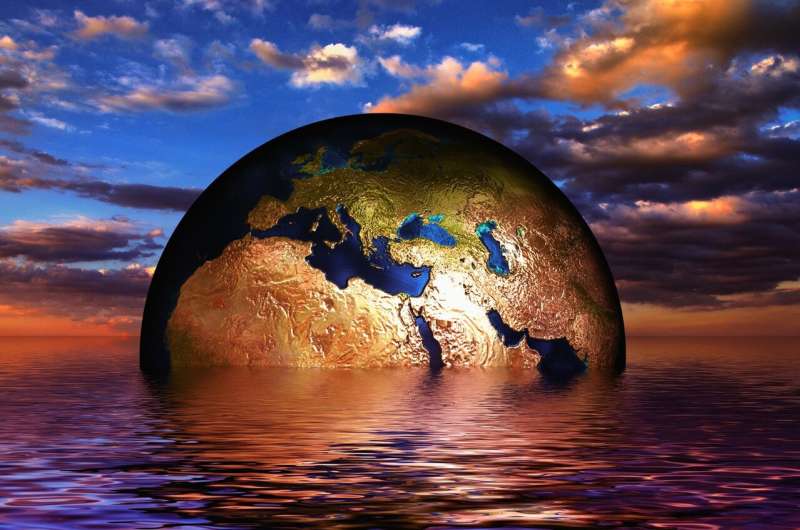Editorial: Five years after the Paris Agreement, the world still isn't doing enough to combat climate change

Representatives from nearly every country on Earth met in Paris five years ago and promised to work together in an unprecedented effort to limit global warming to 2 degrees Celsius above preindustrial levels, with a preferred goal of capping the rise at 1.5 degrees. It took a lot of maneuvering and diplomacy by the Obama administration to reach that agreement after a similar effort six years earlier in Copenhagen failed.
What changed in the interim was strengthened resolve by the U.S. and a decision by China, whose cities were choking on coal-fired smog, to join in the move to a new energy future. Even though some climate advocates argued that the Paris Agreement fell short of what was necessary to achieve its goals, it stood as a framework for moving forward.
But then things unraveled with the election of President Donald Trump, who denounced the agreement, then reneged on the United States' promises by walking away from it—making the U.S. the only nation in the world to not be part of the pact.
So here we are five years after the Paris Agreement, still spewing carbon. In fact, the Emissions Gap Report that the United Nations issued Dec. 9 says that even if countries keep the promises they made under the Paris Agreement, the global temperature would still rise to 3.2 degrees Celsius above preindustrial levels by the end of the century—far too warm. In fact, the report warns that the world needs to triple promised reductions in carbon emissions to meet Paris' target of 2 degrees, and quintuple the reductions to hit the lower target.
Yet a separate U.N. Production Gap Report issued recently found that while nations must reduce fossil fuel production by about 6% a year through 2030 to meet the Paris goals, "countries are instead planning and projecting an average annual increase of 2%." In other words, the world knows what it needs to do. It's just not doing it fast enough or diligently enough.
Contrary to Trump's assertions, the Paris agreement did not impose "draconian financial and economic burdens" on the U.S., nor is climate change a bit of Chinese chicanery to gain economic advantage. Climate change is as real as the wildfire ash that fell over Orange County last week, as real as the rising seas that imperil tens of millions of people worldwide, as real as the hurricanes made stronger and increasingly volatile by warming ocean surface temperatures.
Protracted droughts and heat waves are making parts of the Earth uninhabitable for humans and spawning migrations that will only worsen—and threaten political stability—as we continue to spew heat-trapping gases into the air. Warming is occurring at faster rates in the polar regions than elsewhere, fueling a feedback loop that threatens to exacerbate weather changes across the globe and further raise sea levels.
The catastrophe is, in fact, upon us. The question is, can humankind take the necessary steps to derail the human-driven threats to our own existence?
Frankly, we have no choice. We must redouble efforts to mitigate the worst effects of the problems that we, through decades of human activity, have wrought. The Paris agreement was a start, but we need a restart, a fresh global drive to combat the common menace—ourselves, and the way we produce and consume energy.
If there's a silver lining to the COVID-19 pandemic, it's that it has shown the developed world that we can, indeed, change behavior, and that basic changes in daily life can reduce emissions. But it also has shown how small those steps are—experts see the decrease in emissions this year as a blip that will disappear once the world economy gets back on track.
The Paris Agreement was a bold pact framed by optimism, but also by a recognition that weaning the world off fossil fuels is expensive, will require unimaginable levels of political will and self-sacrifice, and cannot be achieved without deep wells of mutual goodwill. Nations that industrialized early—such as the United States and much of Europe—accumulated massive wealth and bear significant responsibility not only to significantly curtail current emissions, but also to help less-developed nations progress into a future of renewable energy.
And we cannot change by clinging to the past. Oil corporations are already transforming themselves—though not quickly enough—into energy companies. Governments must help workers in that sector retrain for jobs in the growing renewables industry, push through new infrastructures to accommodate the changes, help people transition their own methods of transportation and warming or cooling their homes, and—perhaps most crucially—work to end the extraction of fossil fuels in the first place. Our world hangs in the balance.
Provided by Los Angeles Times
©2020 Los Angeles Times.
Distributed by Tribune Content Agency, LLC.




















